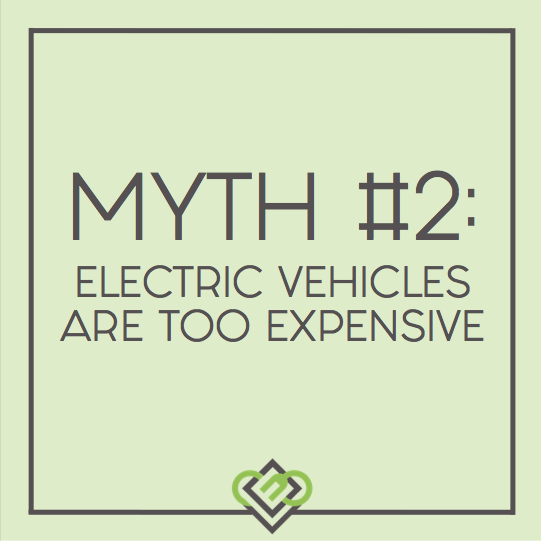
The most common detractor when it comes to EV adoption is the myth that electric vehicles are too expensive for the average consumer. I won’t pretend that driving your paid-off internal combustion engine (ICE) car is cheaper than buying a new EV, but when you’re in the market for a new car, electric vehicles are a more feasible option than you’d think because of four words: total cost of ownership. Total cost of ownership includes initial cost, maintenance, fuel, and tax credits and subsidies.
So the true question is: how much will an EV cost me over its lifetime as opposed to an ICE car? Now, Live Electric doesn’t endorse one brand of car over the other, so the models I’ll mention are just to give you some concrete numbers to think about.
According to these calculations for a Hyundai Elantra (ICE) and a Nissan Leaf (EV), even if the sticker price of your EV is twice an ICE car, the federal subsidies and a modest projection of fuel usage combined make the total cost of ownership significantly lower.
You’ll spend less on maintenance with an electric vehicle, too. EVs don’t have fan belts, air filters or spark plugs, and don’t use oil– so kiss those maintenance costs and oil change appointments goodbye. A study conducted from 1997-2015 by Applied Energy assesses the TCO of several cars: the Toyota Prius, Prius Plug-in, Nissan LEAF and the Toyota Corolla. They got their numbers using average annual mileage and annual maintenance costs, and according to the study, “costs were found to be cheaper for electric vehicles due to less wear on the brakes and fewer moving parts.”
Replacement batteries are the major maintenance cost in an EV. However, battery prices are going down and gas prices are going up, and the study, which has data up to 2015, is already a little outdated because EVs get cheaper every year, making cost of ownership even lower. Almost every auto manufacturer has an EV available or in the works, which will drive prices down due to competition. And electricity is produced domestically, shielding price fluctuations from international conflicts that come from oil. The Department of Energy states that charging an electric car costs about half as much as fueling a gas car. The U.S. average per gallon of gasoline is $2.50, and $1.10 per “eGallon” to charge an electric car– or nothing, if you’re using Salt Lake City’s free charge points or using workplace chargers.
For an up-to-date breakdown of discounts/deals on home charging equipment, incentives and tax credits and subsidies, visit https://www.liveelectric.org/incentives